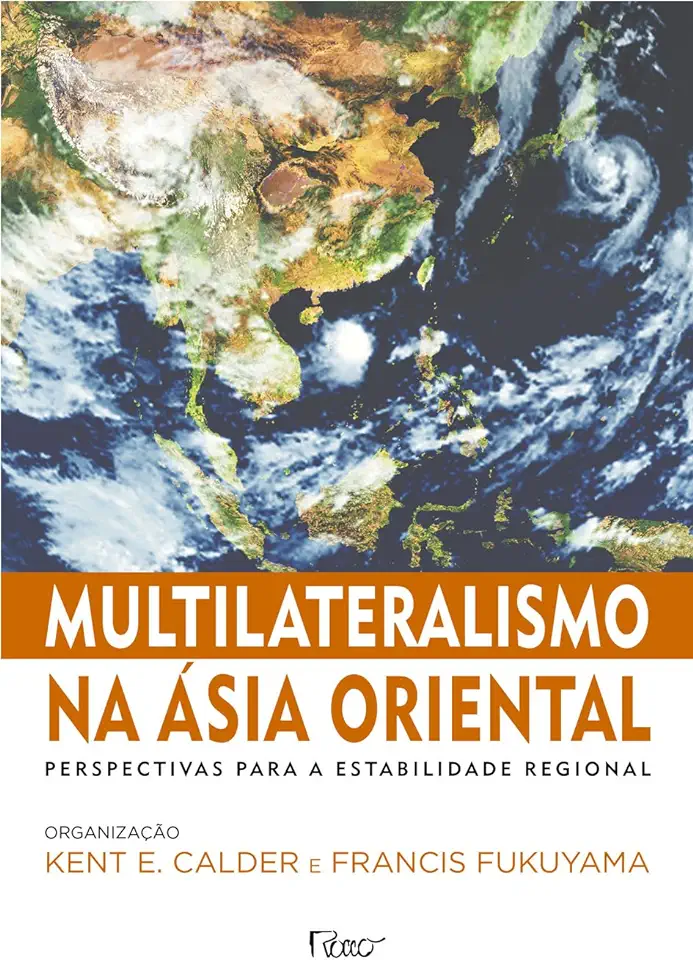
Multilateralism in East Asia - Prospects for Regional Stability - Kent E. Calder | Francis Fukuyama
Multilateralism in East Asia: Prospects for Regional Stability
In the book "Multilateralism in East Asia: Prospects for Regional Stability," Kent E. Calder and Francis Fukuyama present a comprehensive analysis of the state of multilateralism in East Asia and its implications for regional stability. The book argues that multilateralism is essential for maintaining peace and prosperity in the region, and that the United States should play a leading role in promoting it.
The Importance of Multilateralism in East Asia
East Asia is a region of great economic and political importance, but it is also a region with a history of conflict and instability. Multilateralism, the practice of states cooperating to achieve common goals, is essential for managing the complex challenges facing the region, including territorial disputes, economic competition, and environmental degradation.
Multilateralism provides a framework for states to negotiate and resolve their differences peacefully, and it helps to build trust and cooperation among them. It also allows states to pool their resources and expertise to address common challenges, such as climate change and terrorism.
The Role of the United States in Promoting Multilateralism
The United States is the most powerful country in the world, and it has a vital interest in maintaining peace and stability in East Asia. The United States can play a leading role in promoting multilateralism in the region by:
- Providing leadership and support for multilateral institutions. The United States should continue to support existing multilateral institutions, such as the United Nations and the Association of Southeast Asian Nations (ASEAN), and it should encourage the creation of new institutions where needed.
- Engaging with all countries in the region. The United States should engage with all countries in the region, regardless of their political system or ideology. This includes building relationships with China, which is the most powerful country in East Asia.
- Promoting democracy and human rights. The United States should promote democracy and human rights in East Asia, as these values are essential for building a stable and prosperous region.
Challenges to Multilateralism in East Asia
There are a number of challenges to multilateralism in East Asia, including:
- The rise of China. China's rapid economic and military rise has led to concerns about its intentions in the region. Some countries in the region fear that China will become a hegemonic power and threaten their sovereignty.
- Territorial disputes. There are a number of territorial disputes in East Asia, including the South China Sea, the East China Sea, and the Senkaku/Diaoyu Islands. These disputes have the potential to escalate into conflict.
- Economic competition. The countries of East Asia are competing for economic dominance in the region. This competition can lead to trade disputes and other forms of economic conflict.
Prospects for Multilateralism in East Asia
Despite the challenges, the prospects for multilateralism in East Asia are relatively good. The countries of the region have a strong interest in maintaining peace and prosperity, and they are increasingly recognizing the benefits of cooperation. The United States can play a key role in promoting multilateralism in the region by providing leadership, support, and engagement.
Conclusion
Multilateralism is essential for maintaining peace and prosperity in East Asia. The United States should play a leading role in promoting multilateralism in the region by providing leadership, support, and engagement. By doing so, the United States can help to ensure that East Asia remains a region of peace and prosperity for generations to come.
Call to Action
If you are interested in learning more about multilateralism in East Asia, I encourage you to read "Multilateralism in East Asia: Prospects for Regional Stability" by Kent E. Calder and Francis Fukuyama. This book provides a comprehensive analysis of the state of multilateralism in the region and its implications for regional stability. It is a must-read for anyone interested in East Asia or international relations.